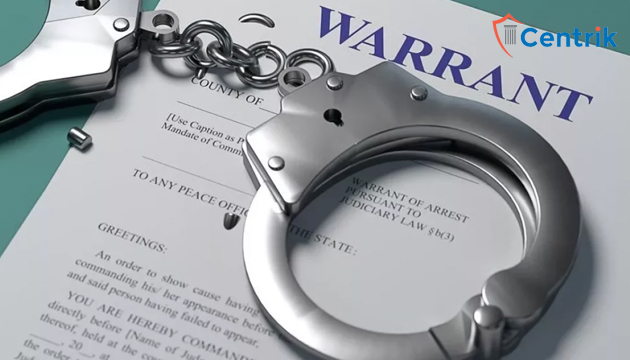
Status as on- 11/05/2023
The Magistrate has the legal authority to issue a non-bailable warrant if it is required to assure or force the appearance of the accused in a cheque bounce case under Section 138 of the Negotiable Instruments Act, 1881.
The maximum sentence for violating Section 138 of the NI Act is two years in prison. As a result, it falls under the definition of a summons case under the Criminal Procedure Code. Nevertheless, it’s important to remember that Section 87 of the Criminal Procedure Code gives a Magistrate the authority simultaneous power to issue an arrest warrant as well as issue summon for securing the attendance of the person in question and it is availed in the interest of justice and which is additional powers conferred upon Magistrate Court.
“87. Issue of warrant in lieu of, or in addition to, summons.— A Court may, in any case in which it is empowered by this Code to issue a summons for the appearance of any person, issue, after recording its reasons in writing, a warrant for his arrest—
(a) if, either before the issue of such summons, or after the issue of the same but before the time fixed for his appearance, the Court sees reason to believe that he has absconded or will not obey the summons; or
(b) if at such time he fails to appear and the summons is proved to have been duly served in time to admit of his appearing in accordance therewith and no reasonable excuse is offered for such failure.”
As a result, the Magistrate may issue an arrest warrant for the accused if, in his or her judgment, it is impossible to assure the accused’s appearance in a cheque bounce case in any other way. And depending on the requirements, such a warrant may be both bailable and non-bailable. The court may issue a non-bailable warrant (NBW) for the accused’s arrest if the initial bailable warrant fails to guarantee the accused’s appearance in court. There is no legal restriction in this regard. The Magistrate who has taken cognizance in a case of cheque bounce has the legal authority to issue NBW, but whether they choose to do so will depend on the facts and circumstances of that particular case. The Magistrates have issued NBW against accused parties in cases involving cheque dishonor in a number of instances.
If a non-bailable warrant has been issued against the drawer under Section 138 of the Negotiable Instruments Act, the drawer can apply for cancellation of the warrant. The process for cancellation of a non-bailable warrant under Section 138 of the Negotiable Instrument Act, 1881 is as follows:
- File an application for cancellation of non-bailable warrant: The drawer needs to file an application for cancellation of a non-bailable warrant in the court where the warrant was issued.
- Appear before the court: The drawer needs to appear before the court along with the application for cancellation of the non-bailable warrant.
- Explain the reasons for non-appearance: The drawer needs to explain the reasons for non-appearance in court when the warrant was issued.
- Pay the amount due: The drawer needs to pay the amount due along with the interest and other charges to the payee.
- Provide an undertaking: The drawer needs to provide an undertaking to the court that he/she will attend all future court hearings and comply with the orders of the court.
- Court order: Based on the application and undertaking provided by the drawer, the court may cancel the non-bailable warrant.
It is important to note that the cancellation of a non-bailable warrant does not mean that the case is closed. The case will continue, and the drawer will have to attend all future court hearings and comply with the orders of the court.




 join For Updates
join For Updates